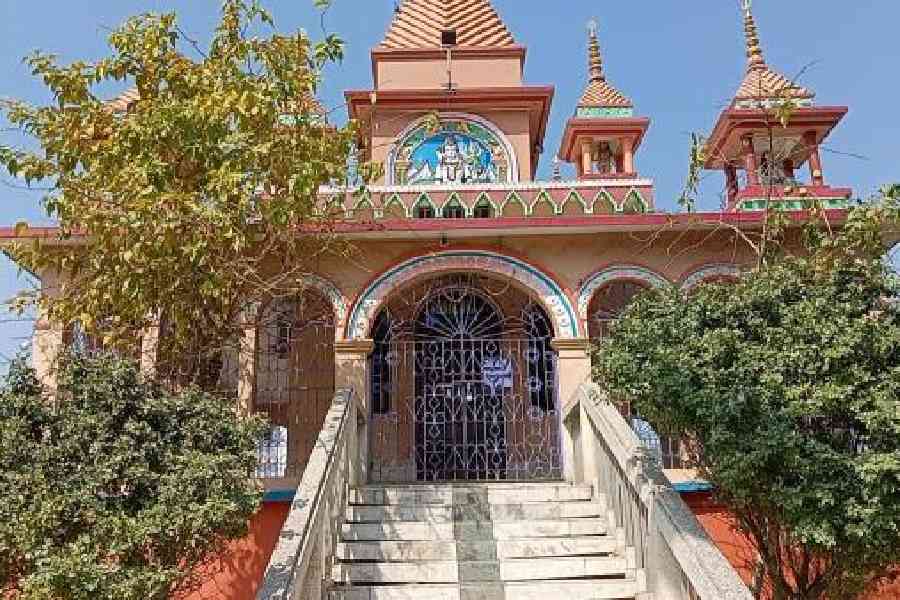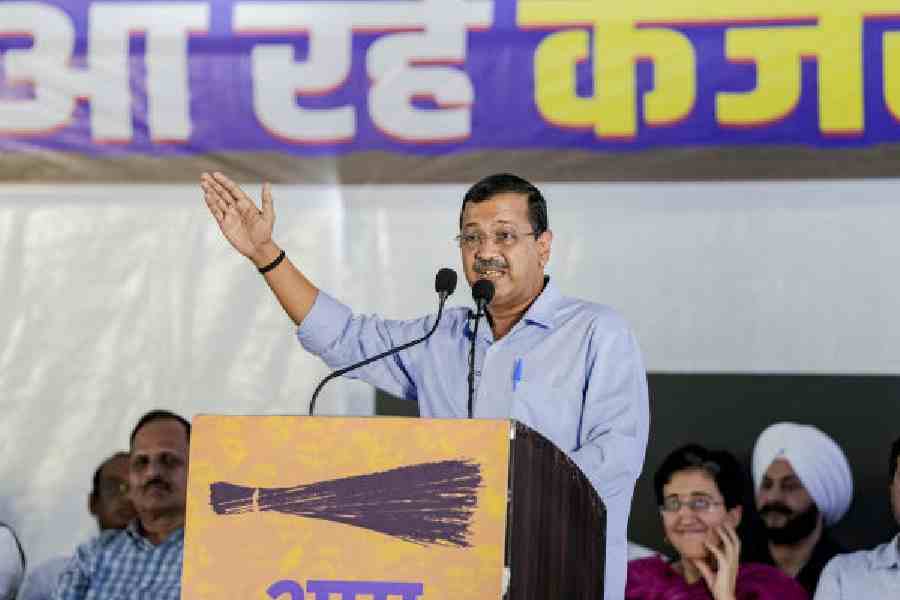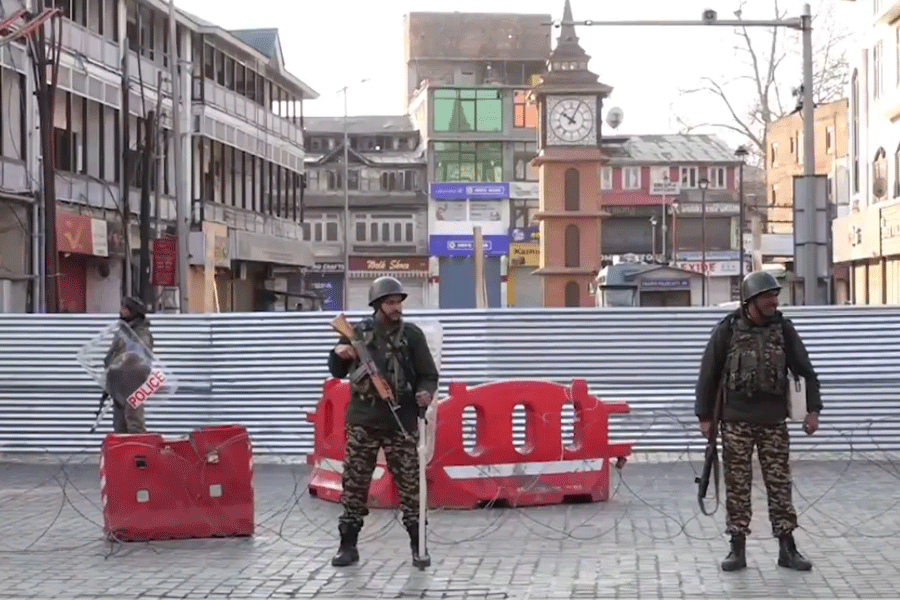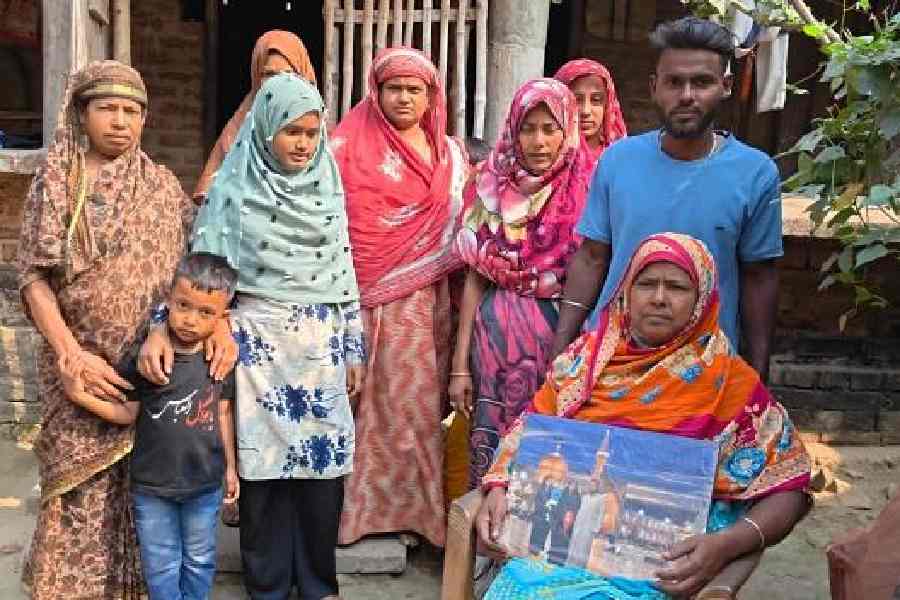Around 130 Dalit families from a village in East Burdwan’s Katwa are fighting for their right to enter a local Shiv temple, challenging a century-old tradition that bars the “lower caste” community from accessing the place of worship.
After the Dalits — from the muchi or cobbler community — failed to enter the temple on Friday despite police help, an outfit representing them wrote to chief minister Mamata Banerjee on Saturday, requesting she intervene to ensure that they get their religious rights.
Despite the administration’s efforts to resolve the issue even in 2025, the families of the Das community in Gidhagram, Katwa I block, have been unable to enter the temple because of resistance from the so-called upper caste families which control the temple’s rules.
“We are not allowed to enter the Shiv temple or worship there because we belong to the muchi (cobbler) community. This has been a longstanding tradition that we can no longer accept in the 21st century. After several failed appeals for entry, we finally approached the administration recently,” said Madhab Chandra Das, a 35-year-old resident of Gidhagram.
Following their appeal, the local administration convened a high-level meeting on February 28, where a resolution was passed stating that such discriminatory practices would no longer be tolerated, as constitutional rights prohibit caste-based discrimination. The resolution affirmed that no individual or community could be barred from practising their religion.
It was decided that the police administration would ensure the entry of the Dalit families into the temple with proper protection. A source said that the Shiv temple was established at least 200 years ago, although the current structure was built in the
late 1990s.
According to the resolution, a large contingent of police and officials arrived on Friday to facilitate the entry of the Das community members into the temple. However, this led to a tense situation as the upper caste group actively blocked their entry.
“Following police instructions, a few women from our area attempted to enter the temple. However, the temple was locked, and the priest fled. Later, our women were chased away by residents of Ghosh Para (belonging to the putative upper caste). We want the police to ensure our entry into the temple,” said Sukanta Das, another resident of the Das community.
Those resisting the Das community’s entry into the temple did not admit that caste discrimination was the reason behind their actions.
“We are simply trying to uphold a tradition that began centuries ago. People from other lower castes are allowed to enter and worship in the temple. However, this particular community (of cobblers) has never been permitted entry,” claimed Joydeb Ghosh, a representative of those opposing the temple entry.
Gidhagram is home to around 800 families, yet only 130 families from the Das community are barred from entering the temple.
Sociologists said this incident revealed how caste-based discrimination persists in rural Bengal, despite the state being known for its inclusive ethos.
“The incident in East Burdwan exposes how entrenched the mindset of untouchability and casteism have quietly been for generations. We often view Bengal through the lens of the educated, emancipated and urbane people, who follow the ideologies of Rabindranath Tagore or Raja Rammohan Roy. However, this village’s reality reveals a different picture,” said Surajit C. Mukhopadhyay, a sociologist who has taught at
multiple universities.
“You can compare this to Kerala, where, despite a high literacy rate, cultural practices still restrict women from entering certain temples in the 21st century. Political parties should take sterner steps to eliminate such practices,” he added.
Rabidasia Mahasangha, an outfit of the Das and other Dalit community people, on Saturday wrote to Mamata, requesting her to step in and ensure that those people could enter the temple.
“This is a very inhumane practice where those trying to enter the temple have been threatened with social boycott. We wrote to the chief minister to ensure the constitutional rights of these people are upheld,” said Rishi Ramprasad Das, general secretary of the outfit.
Ahinsa Jain, the subdivisional officer of Katwa, stressed the administration would not tolerate such discrimination.
“This practice of preventing people from participating in religious activities is unacceptable. On Saturday, we called 16 representatives from opposing villagers and gave them 48 hours to convince others to end this discriminatory practice,” said Jain.
“We will hold another meeting on Tuesday. We are hopeful that the matter will be resolved,” she added.
Local TMC MLA Apurba Chowdhury said: “No one can be stopped from worshipping at a temple. The issue is nearly resolved. We want all residents to enjoy their religious rights.”










